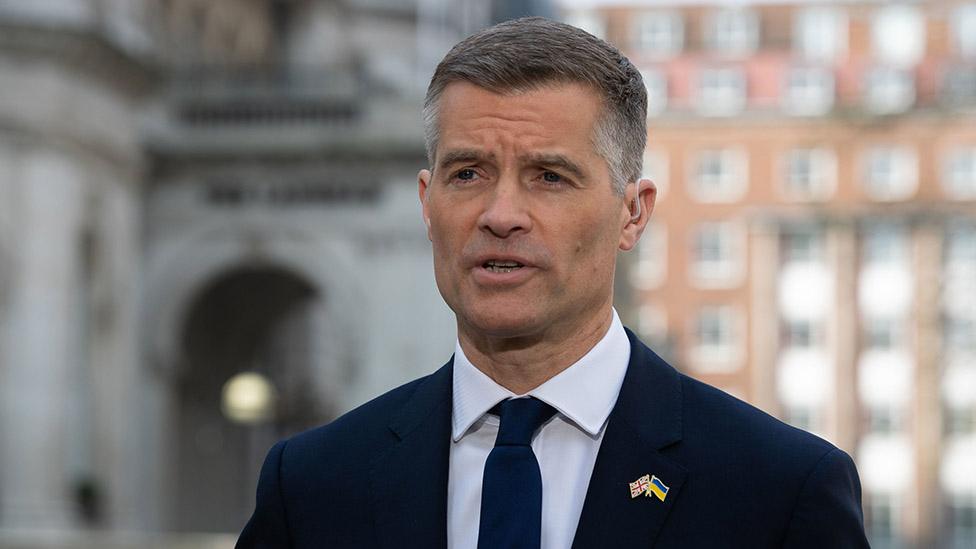Firms show off hydrogen-fuelled road network tech
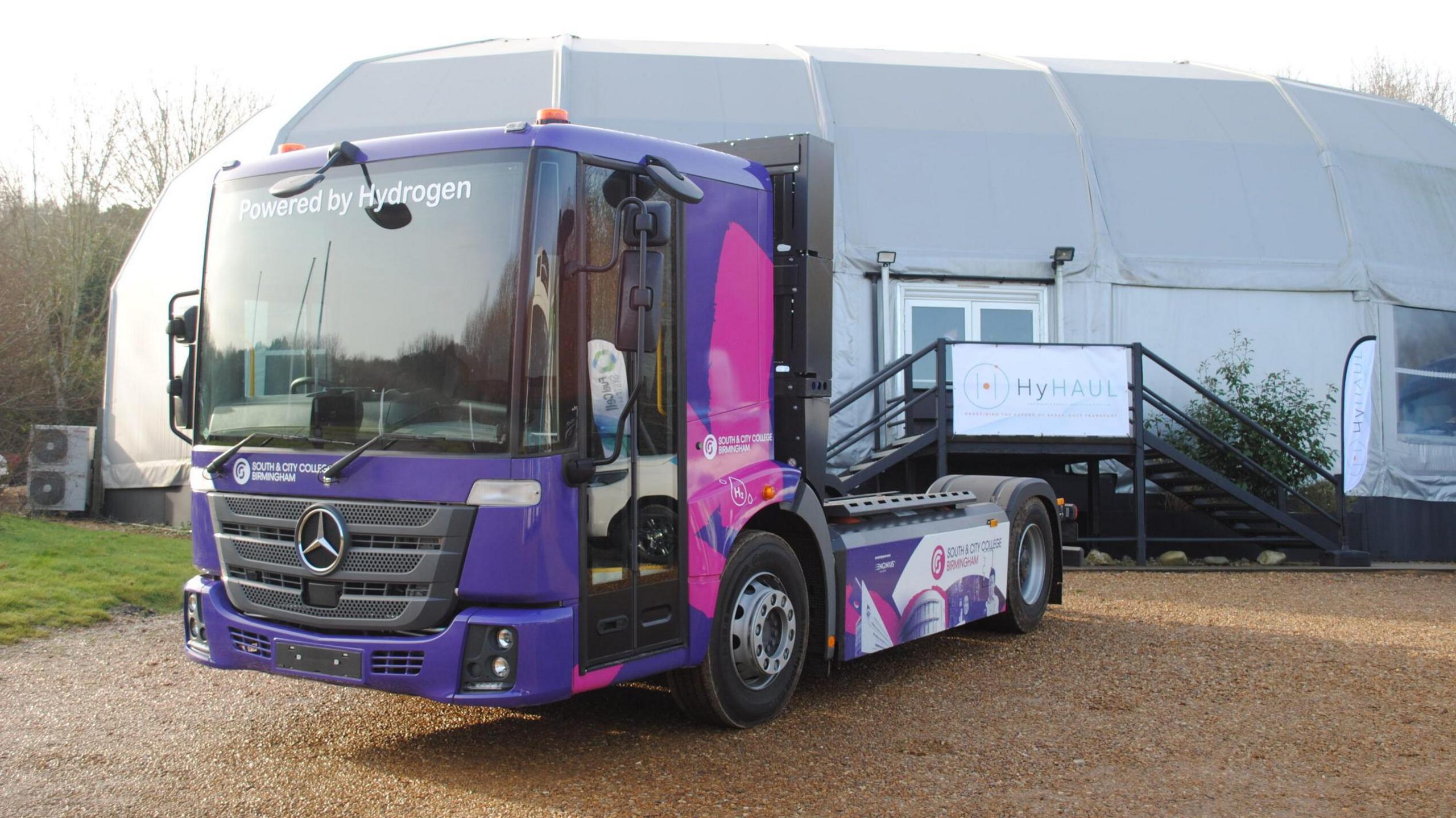
A fleet of 30 lorries powered by hydrogen fuel cells will be on the M4 next summer
- Published
Technology for Britain's first hydrogen-powered freight corridor is set to go on display.
Lorries and refuelling equipment due to be rolled out next summer on the M4 between London and Bristol will be on show at the Cenex Expo 2025.
The show at the Millbrook Proving Ground, near Bedford, brings together those involved in low carbon vehicles and transport.
The government-funded project aims to have 30 lorries, powered by hydrogen fuel cells, on the road next year, with the goal of increasing that 10-fold by 2030.
Before the lorries enter service three refuelling stations will be established near Reading in Berkshire, and Avonmouth near Bristol, with the final location yet to be named.
The company responsible for making sure the sites are up and running on time is Fuel Cell Systems, based just off the M4 at Hungerford in Berkshire.
It already has a record building small scale units, which it has christened "Hy-cubes," with everything needed to dispense the pressurised gas, fitted inside a metal box, no bigger than a small garden shed.
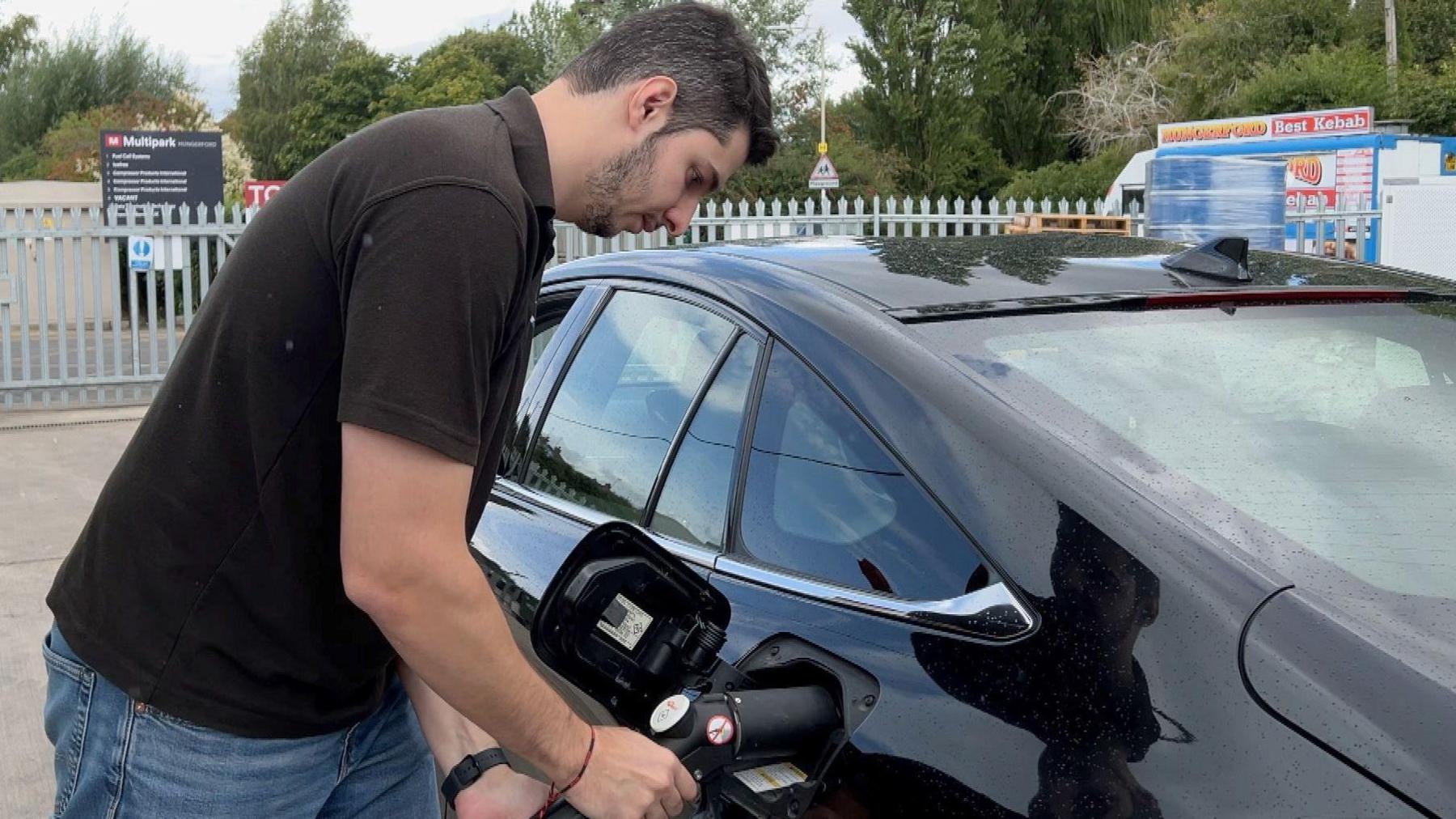
A lack of fuelling sites has held back the use of hydrogen fuel cell vehicles.
"We've deployed these systems in a number of places around the UK," chief executive Dr Lee Juby said.
"We've had Bristol Airport, Exeter Airport. We support Toyota in Derby with their development of hydrogen vehicles with these systems."
The most recent customer was Oxfordshire County Council, which acquired one and an electrolyser to make the hydrogen by splitting water into the fuel and oxygen.
It has plans to try out a fire engine powered by a fuel cell, which then recombines the gasses, generating electricity that in turn is used to drive the vehicle.
Sitting across the factory floor is a much larger unit that is the prototype for what will be installed along the M4.
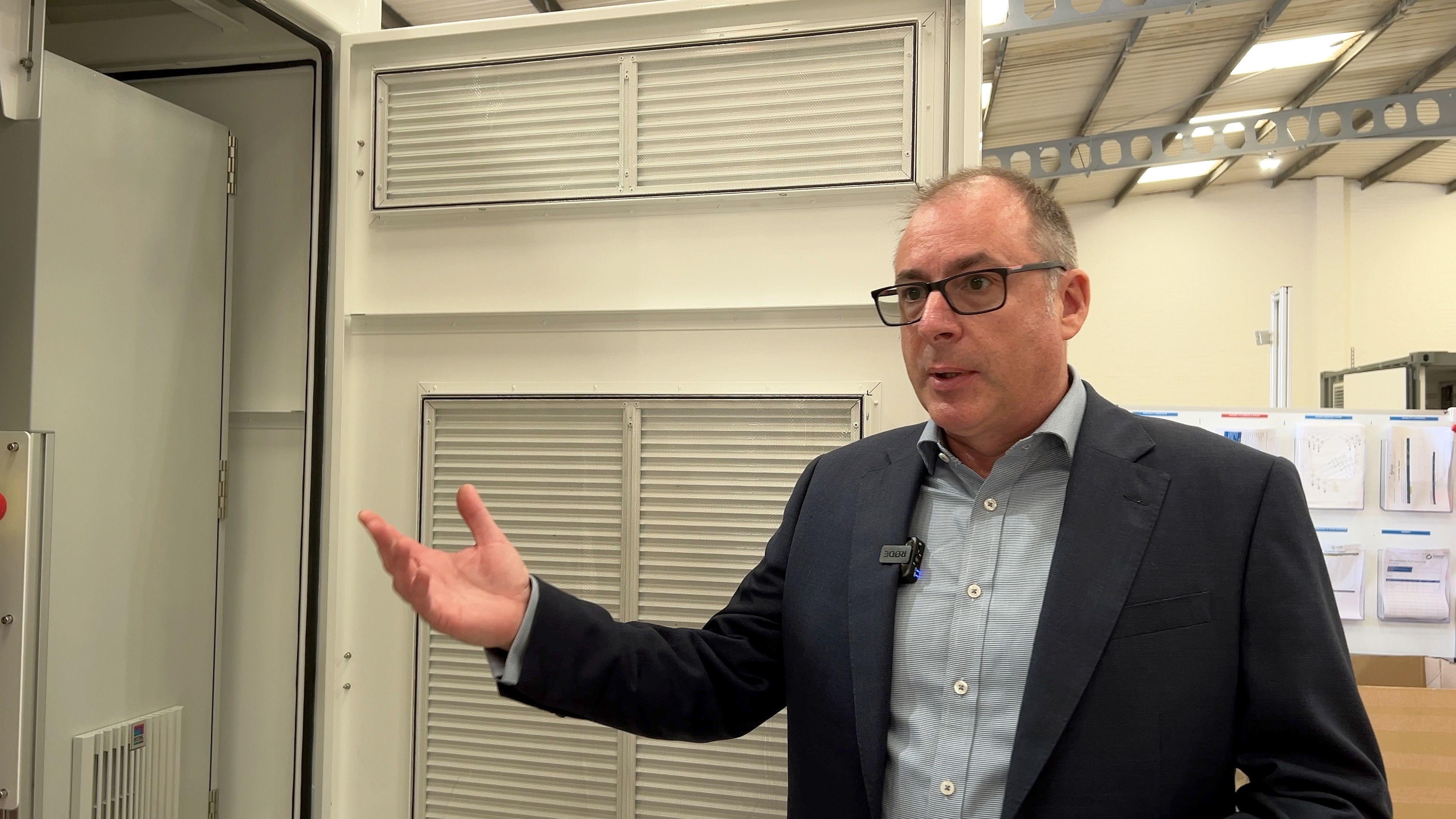
Dr Lee Juby said a far bigger unit was needed to dispense hydrogen for HGVs on a commercial scale
Despite its size, the compressors, hydraulic units, cooling units and controls, all fit in a metal box no bigger than a 20ft shipping container.
"This is 10 times the capacity and this is what you need to refuel HGVs along the M4 corridor," Dr Juby said.
"We build these refuelling stations completely in the factory, so that we can rapidly deploy it.
"The site just needs minor preparation, hard standing, power supply, and we can drop it down in a couple of weeks and be ready to refuel."
That is crucial as the two named locations, and as-yet-unconfirmed third one, have to be up and running before the lorries can roll.
Hydrogen for the lorries will be generated using electricity from renewables, at a site in Swansea.
It will then be shipped in pressurised containers to the fuelling sites along the M4 corridor.
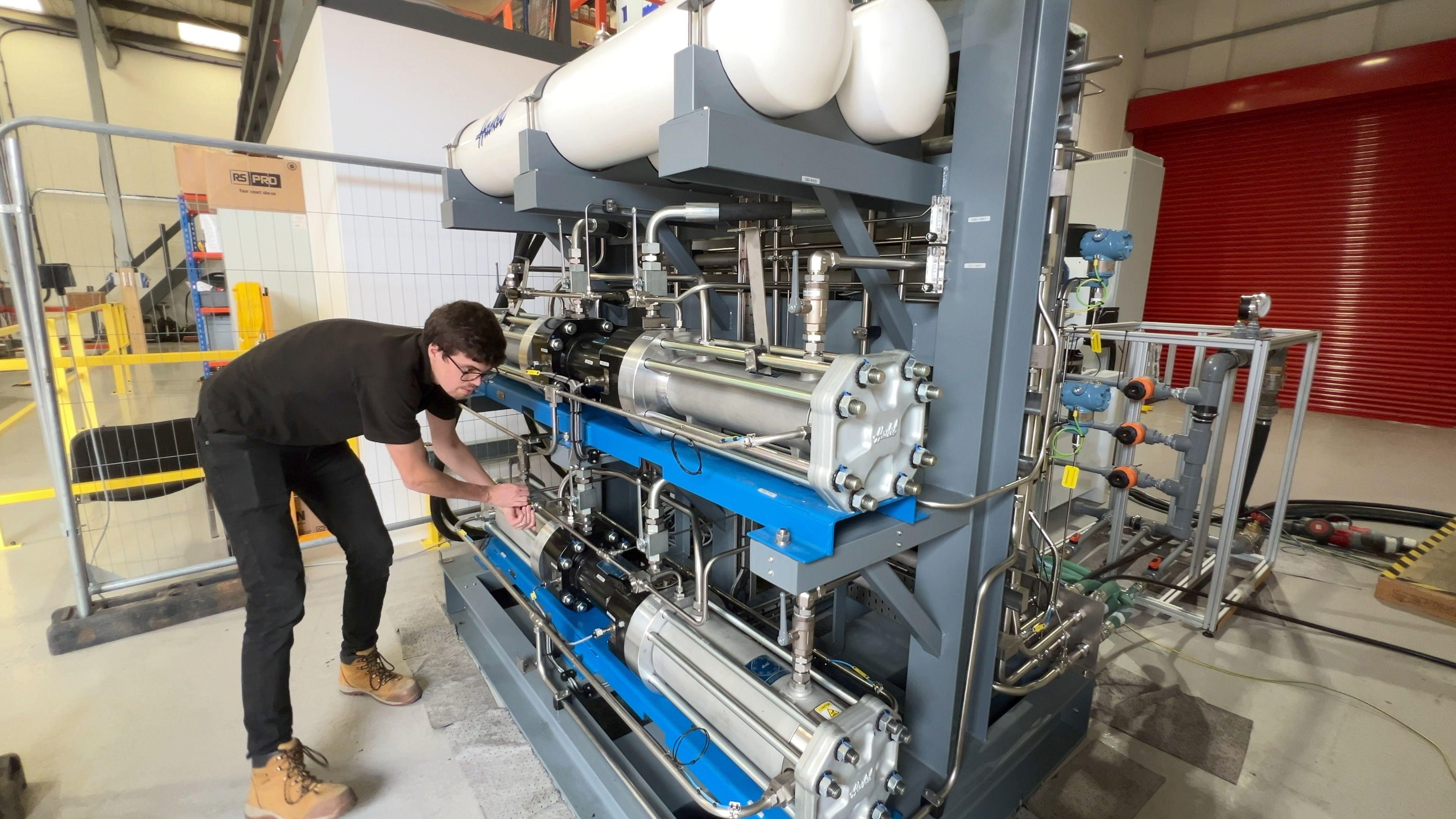
The firm has to go from this prototype to a fully installed system by next summer.
Jon Perry is senior commercial manager of HyHAUL Mobility, the firm running the scheme and whose parent company is providing the hydrogen.
He described the creation of the refuelling sites as "a key step in building the infrastructure needed to support zero-emission freight".
He added that it would prove the technology could work at scale.
Those in favour of hydrogen fuel cell technology for HGVs have said it does not mean lorries hauling around heavy batteries at the expense of cargo.
They also claim the time it takes to refuel a lorry with hydrogen is more akin to filling a vehicle with diesel than recharging a bank of batteries.
HyHAUL has said it already has a number of firms lined up ready to used the lorries as part of the government-backed programme.
It hopes in future to be able to expand the network of fuelling sites along the M5 into the south west, as well as routes down to the port of Southampton.
Get in touch
Do you have a story BBC Berkshire should cover?
You can follow BBC Berkshire on Facebook, external, X (Twitter), external, or Instagram, external.
Related topics
- Published2 August 2023
